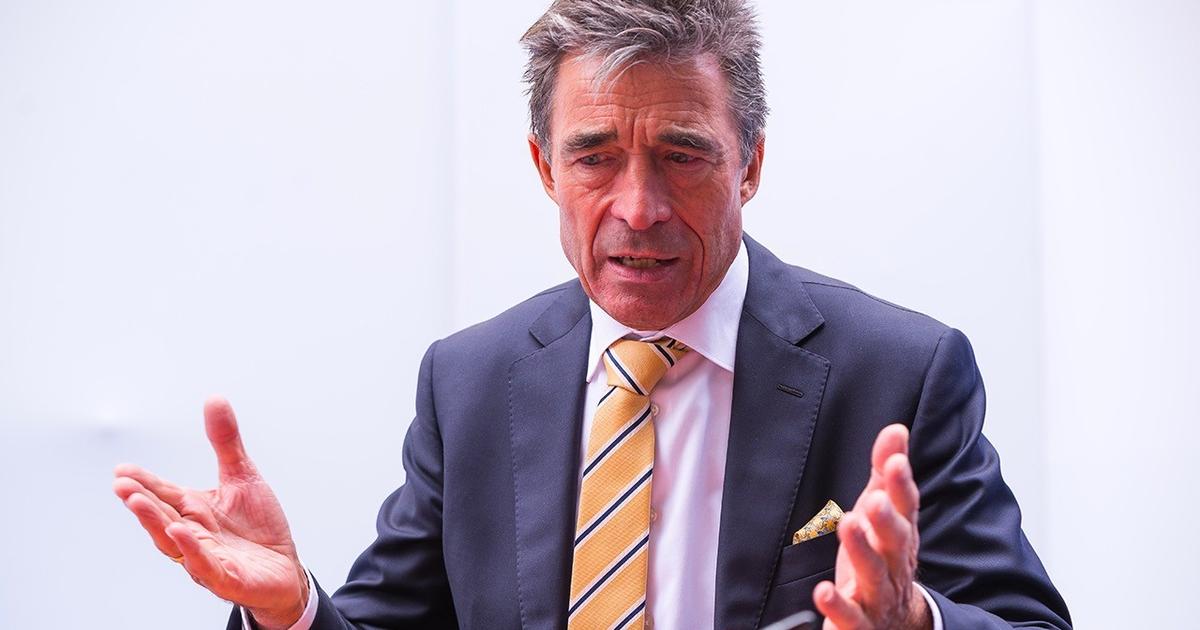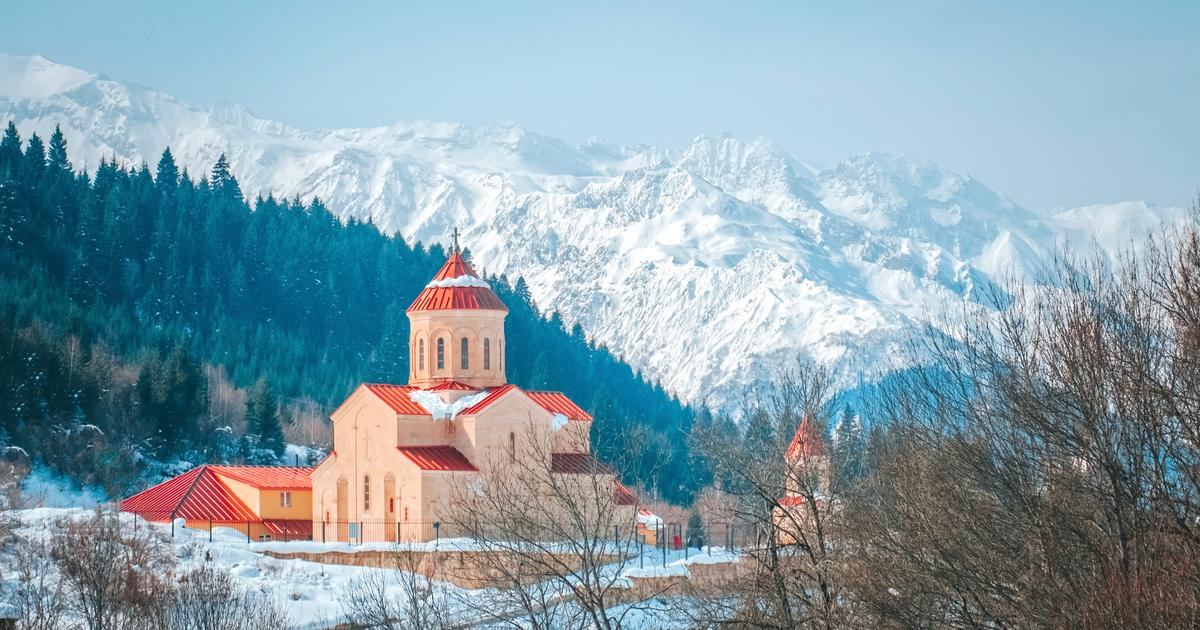Former Danish Prime Minister, Anders Fogh Rasmussen was Secretary General of NATO from 2009 to 2014. He now heads the consulting firm Rasmussen Global, which works in close collaboration with the Ukrainian presidency.
LE
FIGARO.- You have just returned from a trip to Armenia, where you warned of a real risk of escalation.
Why does the situation in the Caucasus worry you?
A.V.
RASMUSSEN
.
-
The risk of an open war between Armenia and Azerbaijan in the near future is real and underestimated.
There is a single road connecting the enclave of Nagorno-Karabakh to Armenia.
Only one.
And this road has been blocked since December 12.
From essential products to medicines, nothing goes by.
Residents are stuck on the Armenian side and cannot return to their homes.
This situation can lead to a humanitarian disaster.
The ultimate objective could be ethnic cleansing, making the life of the inhabitants so difficult that many of them would leave the territory.
I wrote a message to Azerbaijani President Ilham Aliyev urging him to lift the blockade.
He did not answer me, just as he never reacted to the various declarations of the international community.
The International Court of Justice (
judicial body of the United Nations, editor's note
) has itself ordered Azerbaijan to restore circulation.
But the blockade is still there.
I appreciate Emmanuel Macron's strong commitment on this subject, and I hope that France will be joined by the other main Member States of the European Union in increasing the pressure on President Aliyev.
What kind of pressures?
The European Commission and Azerbaijan are bound by an energy agreement.
Obviously, after cutting off the Russian gas supply, we need alternatives.
But this agreement can precisely be an excellent basis for increasing the pressure on the Azerbaijani president.
It is important to tell Baku that our energy interest will not make us look away from a potential humanitarian drama.
It could be that Ilham Aliev is an autocrat, like Vladimir Putin.
But I firmly believe that he is aware of the disadvantage of being considered an international pariah, as is the case for his Russian counterpart.
In my opinion, Aliyev carefully calculates the limits not to be exceeded in violations of international law.
Because the blocking of Nagorno-Karabakh is a violation of the law, as well as the attacks carried out last September on Armenian soil, followed by the occupation of bits of territory.
The European Union must make it clear to the Aliev regime that these violations will not go unpunished.
Doesn't the responsibility for opening the corridor also lie with Russia?
Indeed, the Lachin Corridor has been under the control of Russian “peacekeepers” since an agreement in 2020. I saw with my own eyes the soldiers posted to control the road.
They are very close to the place of the blockade, but they do nothing!
Moscow did absolutely nothing to prevent this situation, just as it said nothing when Baku attacked Armenia in September.
It cannot be ruled out that Moscow, in addition to a lack of will to help its historic ally, also lacks the capacity to do so, being fully engaged on the Ukrainian front.
Either way, there is clearly a paradigm shift in the Caucasus, with Russian influence and impact receding.
Armenians are deeply disappointed by this inaction.
That's why they look for reliable friends, that
You say that Europe has a special responsibility in Armenia, why?
I think that a new conflict in this region at the gates of Europe cannot serve us.
First of all, this risks compromising our energy supply.
Also, the passivity of Russia suggests the existence of an informal alliance between Moscow and Baku, and, behind, between Moscow and Istanbul.
This is why European states must engage in the South Caucasus.
I think the European Union has grasped what is at stake by deploying an observer mission to the Armenian border.
For the moment, the group is too small, the means too limited, and the experts do not have access to the Azeri side of the border.
But it's a good base.
The objective is twofold: in the immediate future, to contain the threat - because Azerbaijan will not dare to attack as long as European observers can observe the facts.
In a longer perspective, I encourage the European Union to make it a real fact-finding mission to establish documented facts on the humanitarian situation in Nagorny Karabagh.
We must also urge President Aliyev to engage in peace negotiations.
The Armenian Prime Minister showed great flexibility in this regard, indicating that for him and his government, guarantees on the rights and security of the inhabitants of Nagorny Karabakh would take precedence over any debate on the status of the enclave (
which wants to be autonomous but which Baku claims, editor's note
).
In other words, Armenia would potentially be ready to accept that the enclave becomes part of Azerbaijan, provided that the rights of the Armenians residing there are absolutely guaranteed.
If such a scenario were to materialize, an international mechanism would be needed to monitor compliance with safeguards.
This is unimaginable without a peaceful peacekeeping mission, which can warn of an imminent risk of ethnic cleansing.
I therefore plead for the deployment of an international and armed mission, under a United Nations mandate.
On another front, that of the war in Ukraine, you advise President Zelensky on the international level. How do you see the future of the conflict?
I foresee intense fights in the weeks to come.
The Russians launched an offensive thanks to the long and painful decision-making process of the West to deliver tanks.
This decision came far too late, and Vladimir Putin exploited this reprieve.
But, so far, the Ukrainians have resisted.
They will probably launch the counter-offensive when they receive the tanks and other heavy armaments promised by the NATO allies.
I really hope that these deliveries will allow the Ukrainians to regain their lost territories.
Providing them with enough to defend themselves is not enough, and heavy tanks will be decisive for the future.
Finland and Sweden applied for NATO membership last May. Turkey has agreed to the first, but opposes the second. How do you analyze the Turkish position?
Needless to hide that Turkey is a complex ally.
We have seen them buy military equipment from Moscow, with whom they meet geopolitically through the interventions in Syria and Libya.
Not to mention the internal concerns in terms of respect for human rights and freedoms.
However, Turkey is necessary within NATO to bridge the gap between East and West.
The example of Finland proves that in the long term, an agreement is always possible.
I welcome this accession and I hope that Sweden will follow shortly.
Remember that Turkey was opposed to my election to NATO in 2009*, but they ended up accepting and we ended up having an excellent relationship.
Turkey is the member of the alliance that I have visited the most!
Do you share Emmanuel Macron's view that NATO was
"
brain dead
"
before the conflict in Ukraine?
Of course not (laughs).
But we must admit that the alliance was revived by this conflict.
Everyone now realizes how crucial NATO's existence is.
Vladimir Putin got exactly the opposite of what he was looking for: he wanted less NATO, he will have obtained a stronger alliance, with two additional members, more defense investments and a reinforced deployment of troops on the eastern front of Europe.
Is what Ukraine is going through linked to a lack of reaction in 2014
,
during the annexation of Crimea?
Yes, at that time we should have reacted much stronger.
I had pleaded for it.
But NATO could not act faster than the consensus between its member states would allow.
In retrospect, it is now even clearer that we sent the wrong message.
We reacted both too slowly and too leniently, and Vladimir Putin misinterpreted this as an invitation to launch a full-scale invasion of Ukraine.
I believe that in 2014, a stronger reaction on our part could have avoided this war.













